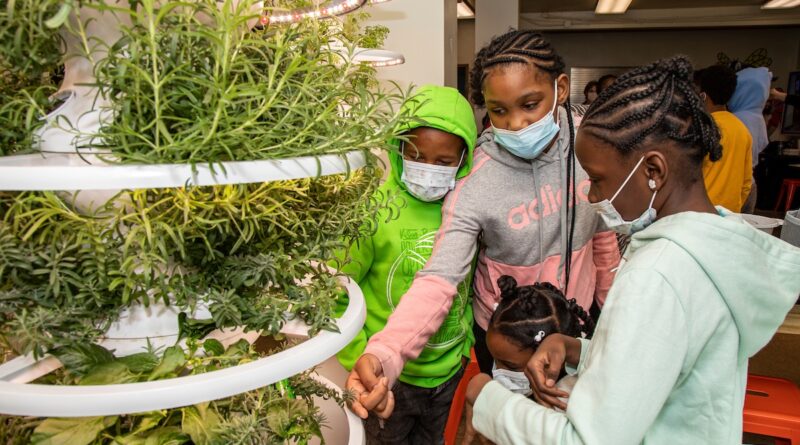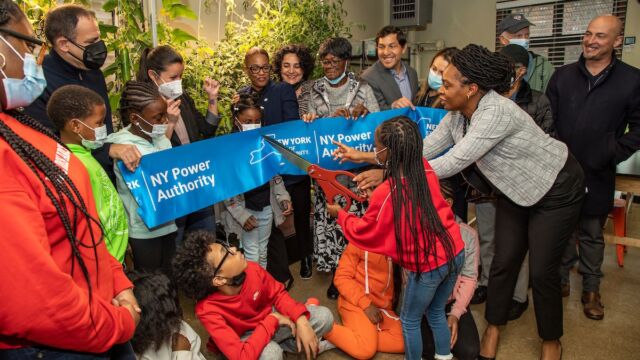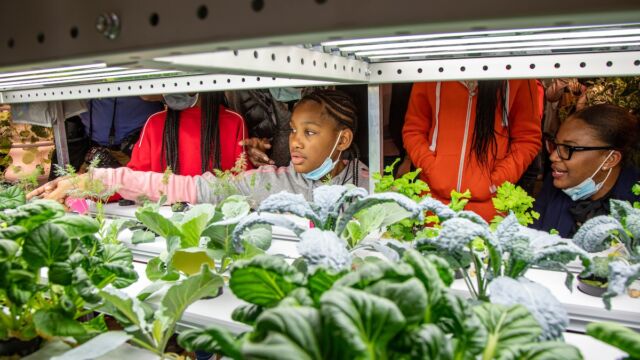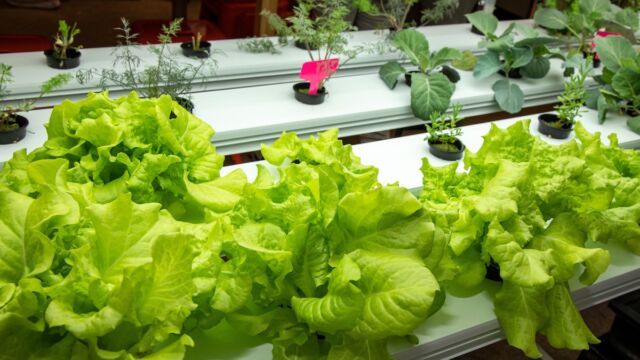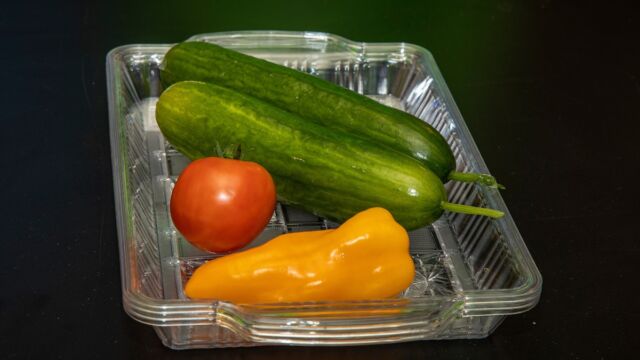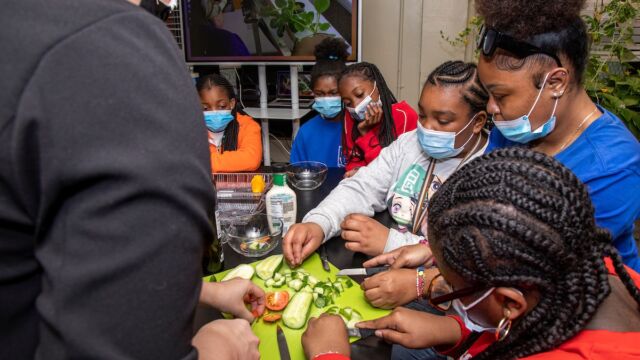Environmental Learning Lab Opens First NYCHA Site at Astoria Houses
In a community center room at Astoria Houses in Queens, young NYCHA residents are adding a green focus to their education, exploring urban agriculture, sustainability programs, and environmental science.
Created through a partnership between the New York Power Authority (NYPA), New York Sun Works, and HANAC Cornerstone, the new greenhouse lab was officially opened on April 25 as the first facility of its kind on a NYCHA campus. The lab uses hydroponic systems in which students and residents can learn to grow crops such as vegetables and herbs indoors without soil.
By getting hands-on experience in urban farming in their neighborhood, community members can develop new skills, learn about nutritional resources, receive access to more healthy food sources, and contribute to New York’s emerging clean energy economy.
“NYCHA is committed to exposing our residents to emerging green technologies and connecting them to sustainable career pathways,” NYCHA Chair and CEO Greg Russ said. “The installation of this state-of-the-art community greenhouse lab at Astoria Houses will provide a fertile training ground for environmental science and food education, and we are grateful to the Power Authority and HANAC Cornerstone for facilitating this innovative source of youth programming.”
The science lab, constructed in a community room used for after-school programming, is part of NYPA’s Environmental Justice program, which provides educational resources to youth from underserved communities.
“Learning about sustainability and climate action is something all New Yorkers can do, and NYPA is privileged to work with NYCHA to bring environment-focused education and resources to communities across New York, including in Astoria, Queens,” said Justin Driscoll, Interim President and CEO of NYPA, which fully funded the classroom conversion project.
The hydroponic technology used in the classroom is a key focus for the nonprofit New York Sun Works in educating young people about science, technology, engineering, and math (STEM) programs; the climate; and sustainability. The organization has developed green classrooms throughout the city (mostly in schools), with the average classroom producing more than 500 pounds of vegetables per school year.
Andrea Mata, NYCHA’s Director of Health Initiatives, is excited to see the environmental learning opportunity come to a NYCHA community center for the first time.
“Many things you can do in a school, you can also do in a NYCHA-based community center,” Ms. Mata said. “There’s also a lot of interest right now in exploring new models of how to grow fresh produce and how to bring healthy food to communities that have been deeply impacted by the pandemic.”
The nonprofit HANAC Cornerstone, which provides year-round programming for youth, will host and maintain the hydroponic lab and incorporate the curriculum into its after-school programs. As part of the classroom programming, NYPA will work with HANAC Cornerstone to present harvest celebrations and activities, farmers market stands, and cooking demonstrations.
Other features of the Astoria classroom include seeding stations, a tower garden, hanging vines, and a composting station. Harvest produced in the HANAC Cornerstone lab will be provided to NYCHA residents and program participants.

